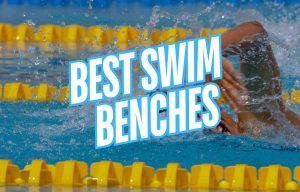
The Best Swim Benches for Stronger and Faster Swimming
Swim benches are an excellent way to build superhero swim strength and improve technique. Here’s a hands-on review of the best swim benches for faster swimming.
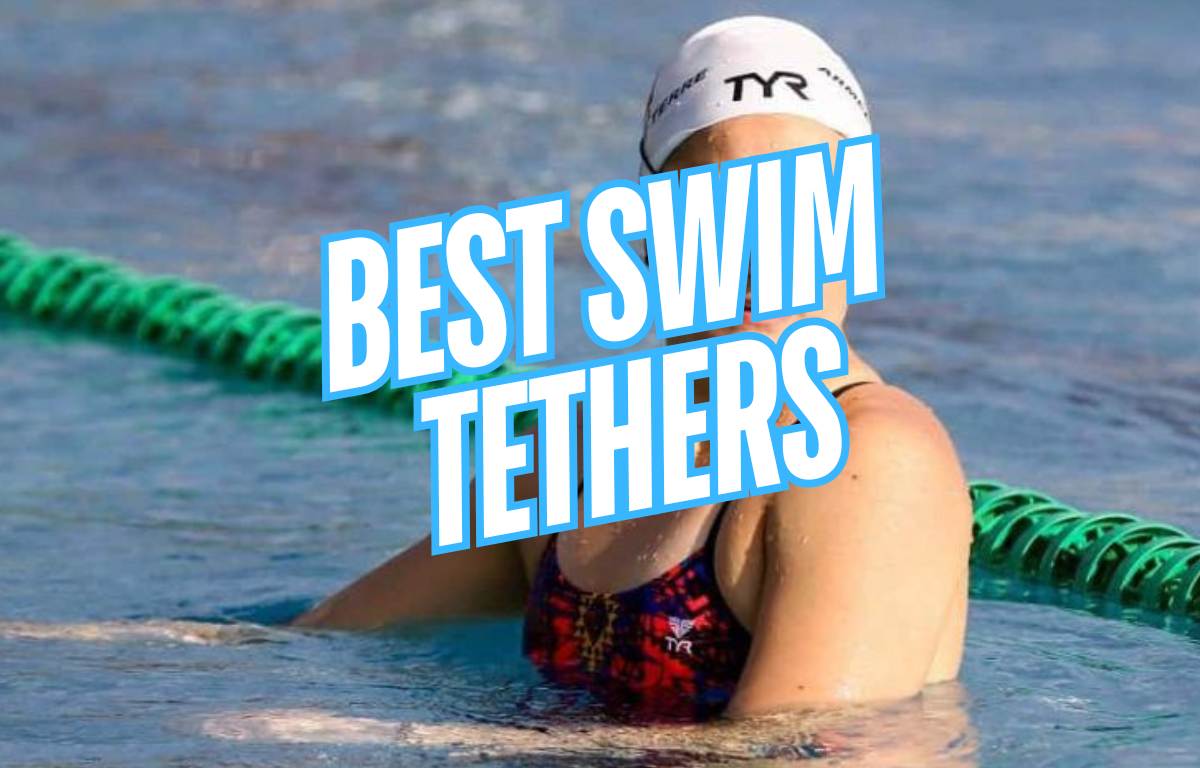
Training out of a small pool? Want to develop lots of swim-specific strength and power? Here’s a look at the best swim tethers for training.
Swim tethers, swim harnesses, swim cords—whatever you wanna call them, are a resisted swimming tool for developing power and speed in the water.
They are also a great option for people with a small backyard pool who want to get some swimming in without the benefit of a full-length swim pool.
Swim tethers are awesome because they allow you to make the most of limited pool space (for example, you can train in a small hotel pool, a dive tank, or even in calm open water), and for you swimmers who are lucky enough to have a small pool in the backyard, is a way to simulate longer lengths in a shorter pool.
The best overall tether is the StretchCordz SuperStroke Swim Tether. The long belt edition is best for swimmers with access to full size pools for progressive resistance training and overspeed work, while the short belt version is ideal for swimmers with shorter pool spaces and maximum power development.
In this guide, we will break down the best swim tethers and cords for swimmers and swim training so that you can choose the perfect option for your goals and workouts in the pool.
Let’s dive right in.
The top-rated swim tethers for improved swimming include:
Next, we will look at each tether more closely, including our experience training with them in the pool, key features, and which kind of swimmer will benefit most from each tether.
⭐ Best overall swim resistance bands
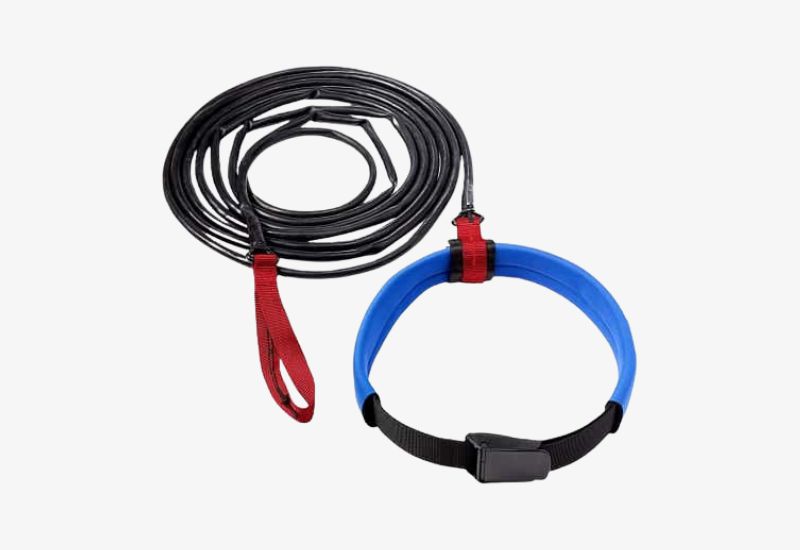
I have been using StretchCordz products since my early age group swimming days. StretchCordz, whether it’s their swim tether or stretch cords (the resistance bands frequently seen on pool decks and essential dryland workout gear), have long been the brand most associated with swim resistance bands.
The StretchCordz Swim Tether comes in three different levels of difficulty.
Red is the “heaviest,” giving 12-30 pounds of resistance, with green (8-24), yellow (5-14), and silver (3-8 pounds) following.
The range of difficulty depends on how far the cord is stretched out. These particular cords can stretch out quite a bit, so if you want to train in a small pool, consider the short belt StretchCordz (detailed below).
The StretchCordz SuperStroke is long enough to accommodate larger swimmers easily (I am a 36” waist and still have plenty of strap leftover). The cord itself is made of thick latex that can withstand plenty of swims and the resulting pool chemicals.
| ✅ PROS | ❌ CONS |
| Best swim tether for full size pools | Not suitable for very small pools |
| Perform resistance and overspeed work | |
| Helpful for measuring progress | |
| Extra thick tubing for maximum durability and resistance | |
| Multiple resistance levels |
⭐ Best tether for maximum power development
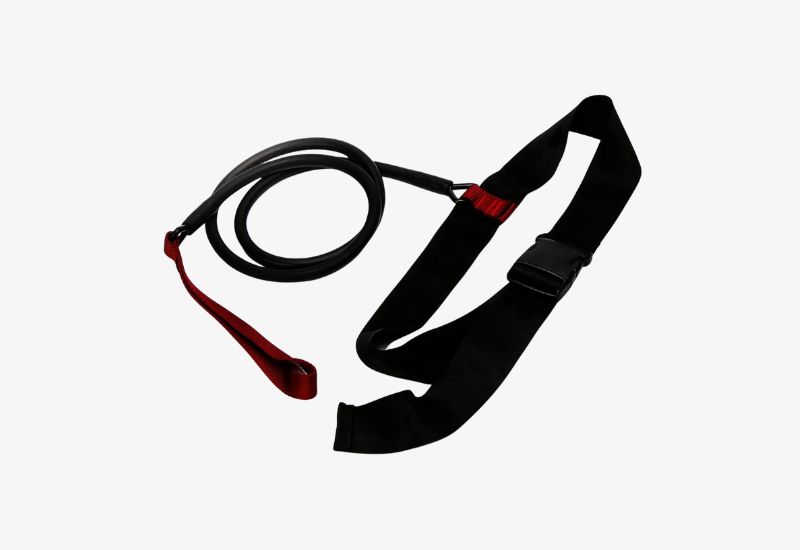
Swimming in a small backyard or hotel pool?
The StretchCordz SuperStroke Swim Tether is your best pick. The thick rubber cords are just 4 feet in length (and can stretch up to 3x).
They are very short, and the rubber tubing doesn’t give a ton (best used in a small rectangular above-ground backyard pool if yer lucky enough to have one), so consider going with one of the easier colors to get started.
The short length of the cords also makes the StretchCrodz Short Belt Swim Tether a preferred choice for those looking to do other forms of water-based exercise, including jogging, lunges, etc.
| ✅ PROS | ❌ CONS |
| Best for power and strength swim training | Frequently sold out |
| Heavy-duty tubing for excellent resistance | |
| Fits swimmers with up to a 44” waist | |
| Different resistance levels |
⭐ Best stationary swim harness
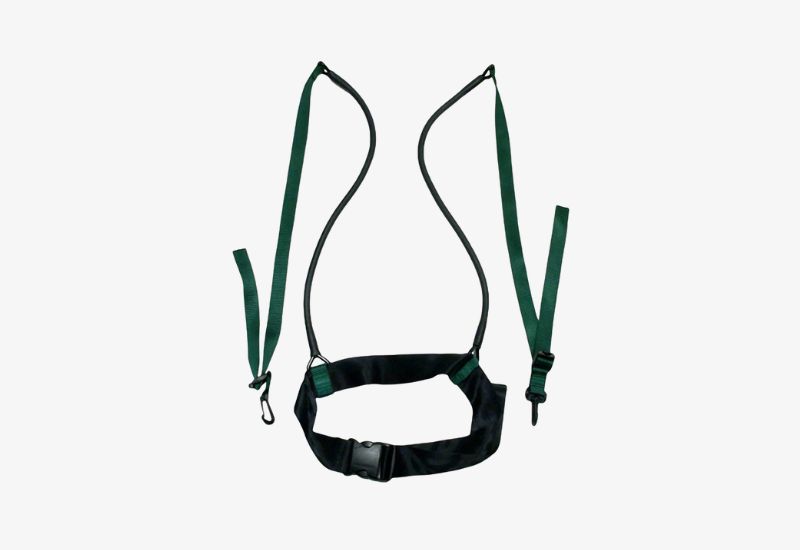
StretchCordz makes another resistance belt and tether perfectly suited for very small pools.
For swimmers who want to get some extra training under the belt (ha!), but don’t have a lot of water to work with, the StretchCordz Stationary Swim Trainer is an excellent choice.
While designed to be latched onto a set of lane ropes, it can be easily jerry-rigged to the side of a small pool.
Each side has 2.5 feet of tubing and the belt can accommodate swimmers with a waist of up to 44-inches.
| ✅ PROS | ❌ CONS |
| Best swim tether for experienced swimmers | Not suitable for beginner or novice swimmers |
| Can be used mid-pool or on the wall | |
| Provides excellent resistance | |
| Feet and legs don’t get tangled in cord | |
| Short enough to work push-offs and underwaters |
⭐ Runner-up for best stationary tether
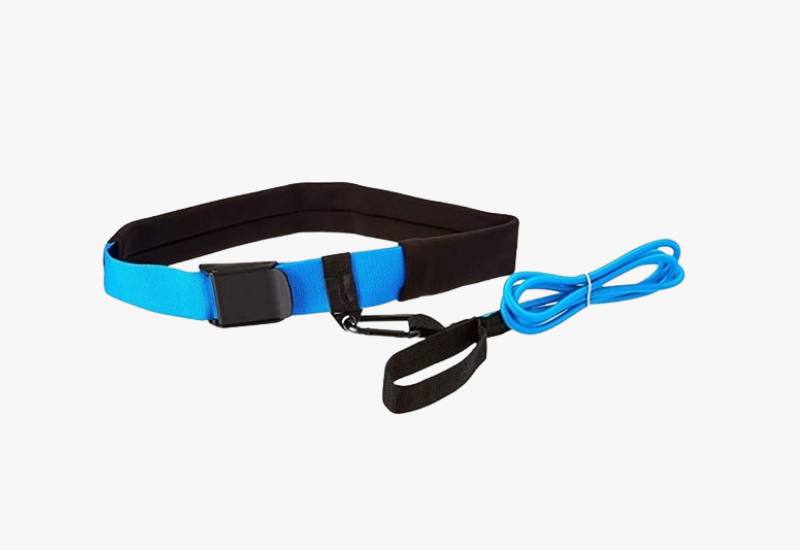
The TYR Aquatic Resistance Belt is a lightweight, budget-friendly, and simple swim tether that can fit a wide range of users in the pool, from beginners to Olympic-level athletes.
The tether is six feet long, 14ft when fully stretched out, and is covered in fabric to protect the elastic tubing inside. The nylon belt is adjustable and can fit users with a waist up to 40”.
The tether is extremely lightweight, much lighter than the StretchCordz Short Belt, making it perfect for easy transport and storage in your swim bag and ideal for swimmers on the move.
The TYR Aquatic Resistance Belt also looks good. I know looks aren’t everything, but the tether is smartly designed. And the price is excellent too, retailing for less than $30.
| ✅ PROS | ❌ CONS |
| Lightweight construction; easy to store and transport | Not as heavy-duty as the StretchCordz Short Belt |
| Fabric-covered tubing that protects the tether | |
| Fits swimmers with a waist up to 40” | |
| Budget-friendly |
⭐ Best budget-friendly swim resistance belt
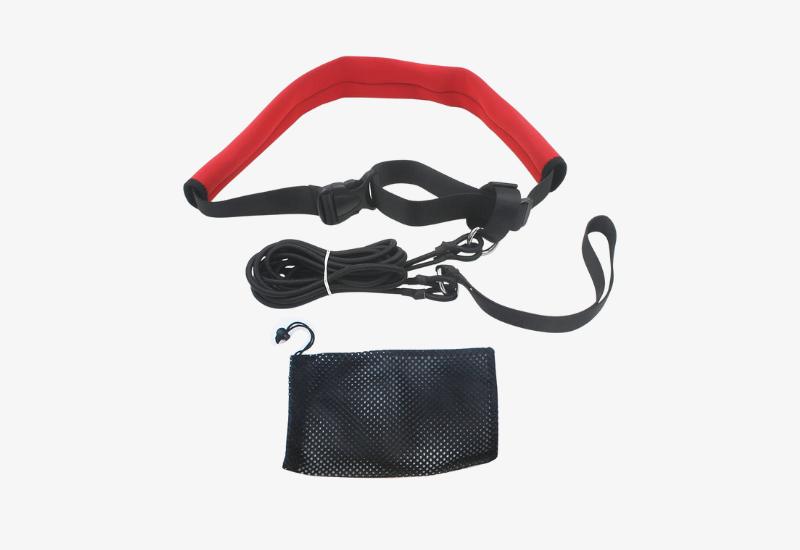
Although not one of the more recognizable brands of swimming gear, YYST manufactures low-cost alternatives for recreational and competitive swimmers.
The YYST Swim Belt is a killer option because of its durable cord and price point (around 60-70% cheaper than the name-brand swim gear).
The YYST Stationary Swim Belt comes with a mesh bag for quick storage, a belt that is padded with neoprene that can accommodate up to a 44” waist, and can be easily looped to pool ladders or starting blocks.
With a cord that is two meters long, this particular swim belt is ideally suited for smaller swimming pools.
| ✅ PROS | ❌ CONS |
| Short belt design for stationary and max power swimming | Cord is too short for some users |
| Budget-friendly pricing | |
| Comes with a mesh carry bag | |
| Heavy duty carabiner to connect cord |
🏅 Best resistance tether for elite swimmers
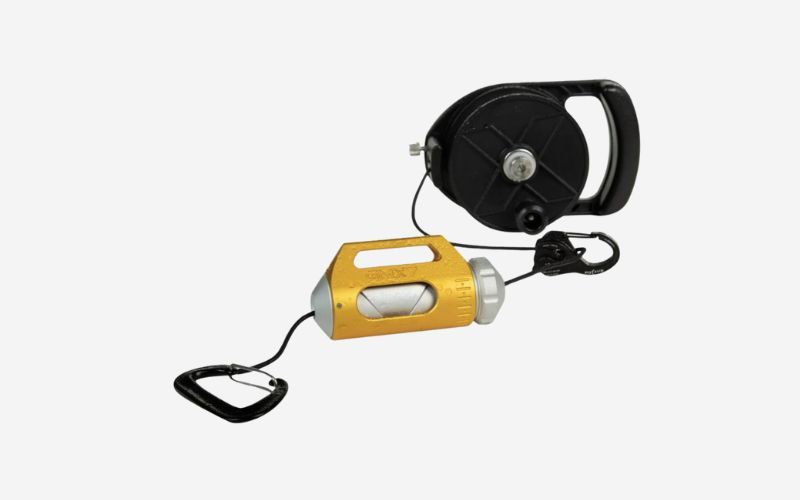
The GMX7 X1-Pro is the ultimate form of resistance training in the water.
Part adjustable resistance, part swim tether, the X1-Pro attaches to the lane rope clips at the end of the wall and generates a custom amount of resistance for swimmers via a small shuttle that attaches to the cables of the device.
Swimmers can go swim full lengths of the pool and turn¸ with the shuttle generating consistent resistance the whole way through.
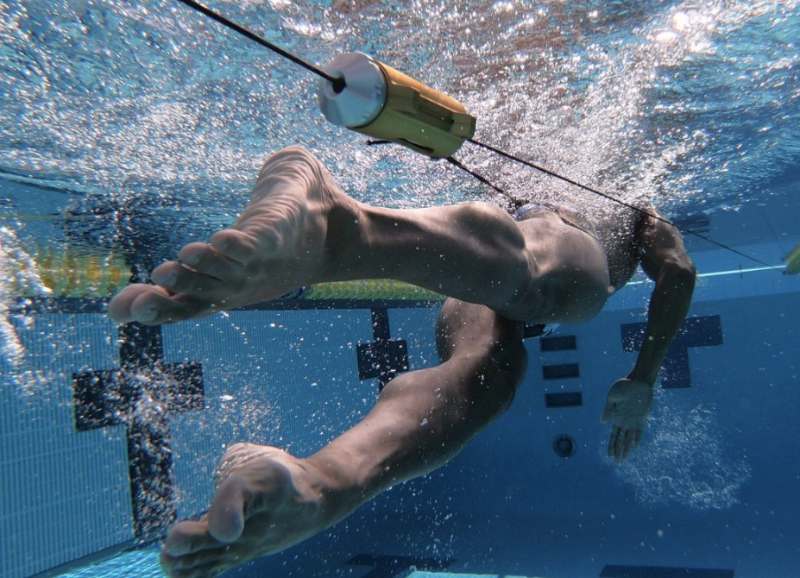
I really like this feature, which is superior to resistance tubing, which provides gradual resistance, or really short tethers and tubing that stop swimmers in their tracks, changing stroke kinematics and technique.
The GMX7 is a tether/resisted training tool for more elite swimmers who have access to their own side of the lane to use without tangling into other swimmers.
The device is surprisingly small and lightweight (under 4lbs), making it a great option for swimmers on the go. All that functionality does come with a price tag, however, with the GMX7 retailing for around $750.
| ✅ PROS | ❌ CONS |
| Best tether for swimmers looking for adjustable and constant resistance | Requires own lane for full use |
| Resistance levels can be easily adjusted | Expensive compared to other |
| Lightweight, portable design (< 4lbs) | |
| Cables stay out of your feet when swimming |
When buying a swim tether, swimmers should keep the following factors in mind
Length – Tethers vary in length. Longer tethers are ideal for full-length swimming pools. They provide a smoother and more gradual form of resistance. Shorter tethers use more compact tubing that doesn’t stretch as much and are designed for very small pools (like a swim spa) or for doing maximum resistance work in training.
Construction materials – Look for a swim tether that is made of chlorine-resistant materials like silicone or natural rubber. The belt should use nylon or polyester, as both synthetic fibers are chlorine resistant.
Adjustable belt – Chose a swim tether with an adjustable belt that stays snugly and firmly in place. Nothing ruins a workout faster than a belt that chafes and rubs against the skin because it isn’t fastened securely. Tether belts often feature neoprene sheaths that further protect the skin.
Resistance Level – Swim tethers, particularly in the case of StretchCordz, are available in different resistance levels. The easier resistance levels offer more stretch in the tube, where the hard resistance levels offer little to no stretch.
Portability – Competitive swimmers are often on the move, training between different pools and lanes. If this sounds like you, choose a swim tether that matches your goals and is also easily portable.
Ease of installation – A swim tether should be easy to set-up and install. Consider if the tether can be attached to a starting block, pool deck, ladder, diving board, or other sturdy poolside fixture.
Pool size – Size your swim tether to the specific pool dimensions where you will be using it, particularly for smaller pools and swim spas where there is little leeway in space.
By considering these simple points, you’ll be confident in choosing a swim tether that matches your goals and pool environment.
Swim tethers are a tool for resisted swimming, increasing swim-specific strength. Alternatives to swim tethers include power towers, swim parachutes, and DragSox.
Swim tethers are unique in that they are portable, offer maximum resistance, and inexpensive.
Choosing the swimming tether comes down to balancing tubing length, resistance levels, and comfort.
Swimming with a tether is an excellent way to increase overall power in the water or log some yardage in a smaller pool or swim spa.
To recap the best tethers for swimming:
Pick out the swim tether from our expert recommendations above and get your tether on for faster swimming!
VASA Trainer Reviewed: The Swimmer’s Ultimate Dryland Tool for a More Powerful Stroke. Looking to strengthen up your stroke? Develop a more powerful catch? Here’s why the VASA trainer should be added to your training arsenal.
Swim Parachutes: How to Power Up Your Swimming. The swimmer’s parachute is a power development tool that increases resistance in the water. The result? Faster, more powerful swimming. Here’s the 411 on swim parachutes, including the best ones for swimmers.

Olivier Poirier-Leroy Olivier Poirier-Leroy is the founder of YourSwimLog.com. He is an author, former national level swimmer, two-time Olympic Trials qualifier, and swim coach.
✅ Free shipping on Orders over $49
✅ Price Match Guarantee
✅ Best selection of gear for training and competition
✅ Fast and Easy Returns

“This is the best book I have ever seen concerning mental training.” — Ray Benecki, Head Coach, The FISH Swim Team


Swim benches are an excellent way to build superhero swim strength and improve technique. Here’s a hands-on review of the best swim benches for faster swimming.
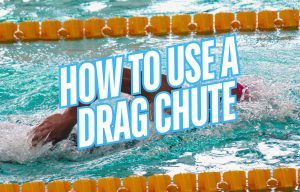
Looking for tips on how to use a drag chute for improved swim performances? Read on for some proven tips, sets, and pointers for training with a chute.

Ready to take your swimming to the next level? Here are seven ways that a drag chute can help you become a better and faster swimmer.
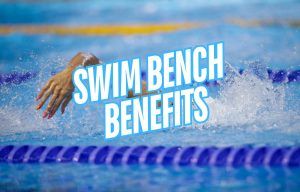
Wondering if a swim bench can help improve your swimming? Here are six benefits of swim benches for better technique, more power, and faster swimming.
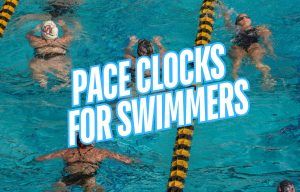
Pace clocks are an indispensable tool for accurate and focused swim training. Here is a look at the best pace clocks for every kind of swimmer and swim team.
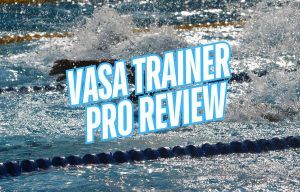
Wondering if the VASA Trainer Pro is the right addition to your dryland training? Here is a hands-on review and how it can help you swim faster in the pool.